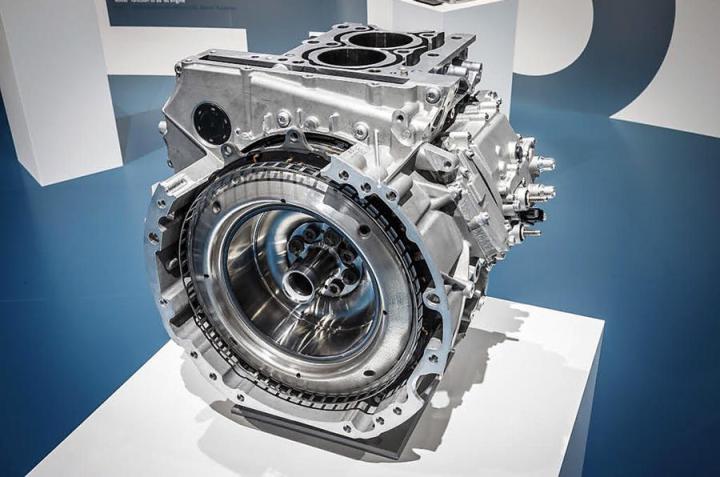
Mild hybrid tech is of course a different, and smaller, animal than full hybrid tech that switches between gas or diesel and electric power, or the tech behind all-electric vehicles. The 0.9kWh 48V power in the Mercedes plan isn’t enough to power a car independently and, even if it were, there’s no way to disconnect the electric motor from the gasoline-powered engine. The electric motor serves as both starter and alternator and is connected directly to the driveshaft.
According to Autocar, the Mercedes mild hybrid electric motor will add up to 19 brake horsepower under acceleration and regenerate up to 20bhp when braking. The resulting fuel economy boost is expected to be 10 to 15 percent. The first application will be with the straight-six gas engine slated to replace Mercedes V6s, with a version for diesel engines coming later.
Mercedes has already committed to full hybrid and all-electric cars going forward. Four new all-electric vehicles are promised by 2020 — two sedans and two SUVs. The first new all-electric model, most likely the higher-end SUV, is expected at least in concept form at the Paris Motor Show this coming October.
The company is also working on full hybrid systems, with a new hybrid version of the S Class 500 getting a larger 13.5kWh battery that will increase its electric-only range to about 30 miles. A hybrid GLE Coupé 350 e is also on the way.
In just a few years, it looks like we can expect all Mercedes-Benz cars and SUVs to be either all-electric, electric-only capable hybrids, or powered by mild hybrid gas and diesel engines that gain added oomph and economy thanks to the attached electric motor.
Editors' Recommendations
- Mercedes G580 electrifies an off-road icon
- Mercedes’ electric eSprinter isn’t just greener, it’s better
- How do you crash-test an EV with an 871-pound battery? Mercedes showed us
- Mercedes-AMG EQE SUV first drive review: a better electric SUV
- 2024 Mercedes-AMG S63 E Performance first drive review: high-performance plug-in



